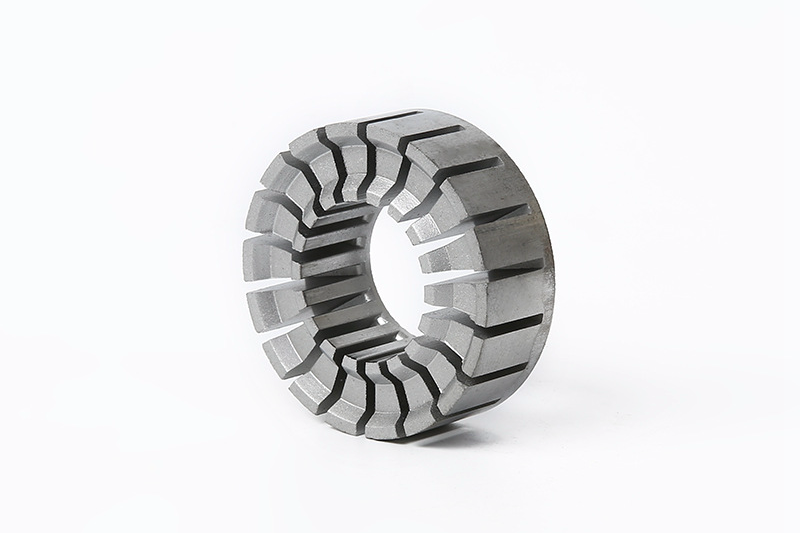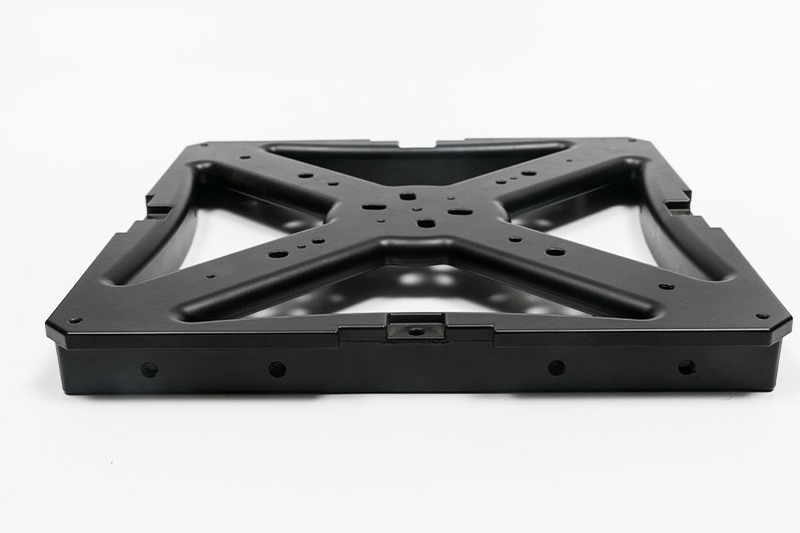Precision Motor Component Manufacturing for Electric Vehicles
Precision Motor Components: The Core Foundation of Electric Vehicle Performance
With the rapid development of electric vehicles, the motor, as the “heart” of the vehicle, directly determines overall power performance, energy efficiency, and driving experience. As the engineering team at Neway, we fully understand the critical role that precision motor components play in electric drive systems. From rotor to stator, from housing to sensors, the manufacturing quality of every precision component has a direct impact on motor efficiency, reliability, and service life.
Advanced Manufacturing Processes for Key Electric Vehicle Motor Components
Rotor and Shaft: The Precision Core of Power Output
As the rotating core of the motor, the rotor’s manufacturing accuracy is directly linked to motor efficiency and NVH performance. Our Metal Injection Molding (MIM) services are utilized to produce permanent magnet retention structures with complex geometries, achieving form tolerances and surface quality levels that are challenging for conventional machining methods. For rotor cores and drive shafts that require higher strength, our CNC machining prototyping services provide the ideal solution. Through 5-axis machining, we ensure dynamic balance accuracy of G2.5 or better, meeting the stringent demands of high-speed motors.
Stator and Housing: Key Elements for Structural Support and Thermal Management
The motor housing not only provides structural support but also plays a crucial role in thermal management. Our aluminum die casting technology enables the production of integrated motor housings with complex cooling channels, ensuring optimal heat dissipation while maintaining structural rigidity. For stator cores, we adopt precision sheet metal stamping processes to efficiently produce silicon steel laminations with high-precision tooling, ensuring dimensional consistency of the stator stack and stable electromagnetic performance.
Sensors and Connection Components: Enablers of Intelligent Control
The high level of intelligence in modern motors relies on precision sensors and connection systems. Through our plastic injection molding services, we manufacture high-temperature-resistant, vibration-resistant sensor brackets and insulation frames. These precision plastic components must not only maintain dimensional stability but also provide reliable insulation performance in the motor’s electromagnetic environment, ensuring the accurate operation of position and temperature sensors.
Finishing Technologies to Enhance Motor Performance and Durability
Finishing processes are essential for improving the performance of motor components. Through precisely controlled heat treatment processes, we optimize the mechanical properties of metal parts, increasing their strength and wear resistance. For aluminum housings, anodizing not only delivers excellent corrosion resistance but also forms an effective insulating layer. In applications with extremely demanding fluid dynamics requirements, electropolishing significantly reduces the roughness of cooling channel surfaces, lowering flow resistance and improving cooling efficiency.
Key Material Selection for Motor Components
Soft Magnetic and Permanent Magnet Materials
Optimization of electromagnetic performance starts with material selection. Our magnetic alloy materials are specially formulated and processed to achieve excellent soft magnetic properties and low core loss, significantly improving motor efficiency and power density. These materials maintain stable magnetic characteristics under high-frequency alternating magnetic fields, ensuring efficient motor performance across a wide range of operating conditions.
High-Strength Lightweight Structural Materials
Lightweight design is a constant pursuit in electric vehicles. Our selected cast aluminum materials, combined with optimized alloy compositions and heat treatments, minimize weight while maintaining sufficient strength. For components requiring higher strength and corrosion resistance, stainless steel provides a dependable solution, particularly suitable for motor connectors and fastening components.
High-Performance Insulating and Thermally Conductive Materials
In high-voltage motor insulation systems, we recommend PEEK due to its outstanding corona resistance and mechanical strength, making it an ideal choice for high-voltage insulating components. For applications requiring special thermal or insulating properties, our ceramic injection molding services enable the production of complex-shaped ceramic parts that exhibit excellent stability under high-temperature and high-voltage conditions.
Applications of Neway Precision Components in EV Drivetrains
Main Drive Motors
In the e-mobility sector, we supply key components for main drive motors to multiple leading automotive manufacturers. From passenger vehicles to commercial vehicles, our precision components help customers achieve higher power density and superior efficiency. Through advanced manufacturing processes and stringent quality control, we ensure every motor component meets demanding automotive-grade standards.
Auxiliary Motors and Actuators
Beyond main drive motors, electric vehicles also rely on numerous auxiliary motors and actuators. We provide precision motor components for systems such as electric power steering, electric pumps, and air-conditioning compressors. Although smaller in size, these components are subject to equally strict requirements for precision and reliability, and our manufacturing processes ensure their stable performance under all operating conditions.
Integrated Electric Drive Systems
As electric drive systems evolve toward higher integration, precision manufacturing faces even greater demands. In three-in-one systems that integrate motor, inverter, and reducer, interface accuracy and component compatibility are critical. Our engineering team conducts system-level optimization to ensure perfect alignment and cooperation among all components within the integrated assembly, maximizing overall system performance.
Choose Neway to Build an Exceptional Drive Core for Your Electric Vehicles
At Neway, we are committed to delivering world-class precision motor component solutions for electric vehicle manufacturers. Our strengths lie not only in advanced production equipment and process technologies, but also in our deep technical expertise and systematic engineering capabilities. From material selection and process optimization to prototype development and mass production, our engineering team works closely with customers to ensure every component achieves optimal performance. Backed by a comprehensive quality management system and rigorous process control, we provide highly reliable product assurance.
Conclusion: Driving the Future of EVs with Precision Manufacturing
In today’s rapidly evolving electric vehicle industry, the manufacturing quality of precision motor components has a direct impact on overall vehicle performance. With professional expertise and extensive experience in precision manufacturing, Neway has become a trusted partner for many leading EV brands. We believe that through continuous technological innovation and process optimization, we can help customers build more competitive electric drive systems and jointly advance the development of electric vehicle technologies.
FAQ
How to control rotor dynamic balance to meet NVH requirements?
What material and structural solutions enable lightweight, high heat dissipation?
How to protect soft magnetic properties during manufacturing?
How do Neway motor components meet automotive safety and reliability?
What is the development cycle for motor components from prototype to production?



